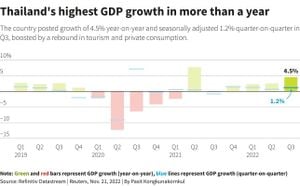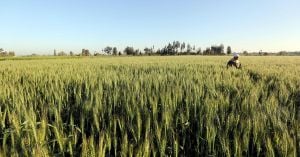France is witnessing significant changes in its asylum seeker support system, with multiple centers shutting down amid shifting demographics and needs. The Centro d’Accoglienza di Yssingeaux (Cada) is set to close within the next two months, leaving the region with fewer resources for those seeking refuge.
Mayor Pierre Liogier expressed concerns over the decision, stating, "On est spectateur : c’est une décision de la préfecture," indicating the decision is entirely at the behest of prefecture authorities and not within local jurisdiction.
The Cada, which currently serves 40 residents, is one of several facilities facing closure. Nearby, the Centre Provisoire d’Hébergement (CPH) and Réinstallation des protections internationales (Repi) will remain operational, but there are questions about how this will affect the individuals relying on the Cada for support.
With the Cada operating since 2015 to provide necessary shelter and resources to migrants, many are now left to ponder their future. Those affected by the closure will potentially be reassigned to housing within the Puy-en-Velay basin. The switch is not yet confirmed, causing discomfort and uncertainty among asylum seekers.
Providing insights on the current state of asylum systems, Carole Souvignet, the director of the Direction départementale de l’emploi, du travail, des solidarités et de la protection des populations (DDETSPP), remarked, "La capacité d’accueil des publics migrants a évolué de manière significative depuis 2018, en passant de 302 à 425 places à ce jour." This reflects how localized asylum resources respond dynamically to the fluctuated numbers of asylum seekers, particularly post-COVID.
The number of asylum requests has reportedly decreased since the pandemic began, influencing the not only the demand for centers but also prompting assessments of their operational efficacy.
Yssingeaux’s asylum support team consists of social workers and volunteers who offer French language courses and facilitate various activities to support the integration of newcomers. The local association Entraide Pierre-Valdo, which specializes in vulnerable populations, is stepping up to support those displaced by the closure. Established across nine departments, their work focuses on welcoming, integrating, and providing socio-professional reintegration to at-risk individuals, including asylum seekers.
While the mayor noted the defunding of the Cada, the challenge now falls upon regional administrators to find solutions for the people affected. Transitioning management to local entities might streamline processes but raises concerns about adequate support and resources for those who desperately rely on these facilities.
Critics argue these closures exemplify broader national trends where asylum support becomes increasingly restrictive, and cities are left managing the fallout without sufficient state-level backing. Advocates for asylum seekers express worry about the welfare and stability of these individuals amid such nationwide changes.
The ground reality for asylum seekers can be complex and tumultuous, and the impacts of such administrative decisions create ripples not only within communities but across the nation. Local authorities must grapple with balancing the demands placed upon them and the resources available, striving to find sustainable solutions for the vulnerable populations they serve.
Despite the challenging regulatory environment, many local organizations and volunteers continue their commitment to supporting asylum seekers during these transitional periods. The community response, characterized by empathy and active engagement, remains hopeful for the successful integration of all migrants within society.
The situation at Yssingeaux encapsulates the significant shifts occurring across France’s asylum policies and the myriad challenges faced by local officials, nonprofits, and newly arrived asylum seekers. With the rapid changes, it becomes ever more important for affected individuals to find not just temporary shelter but paths toward rebuilding their lives.



